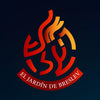
Parasha Tazira-Metzora "the danger of lashon Hara"
Parasha Tazira Metzora (Vayikra-Leviticus 12, 1 - 15, 33)
In this Parasha we will find various teachings with reference to lashon Hara (gossip or slander), this time we will talk about the birds that the leper had to bring for sacrifice according to Vayikra-Leviticus 14, 4 (our Sages taught that leprosy was the punishment for those who had slandered).
And what can we learn from the blood of the slaughtered bird?
In the process of purification of metzora (‘person affected with spots of tzaráat" leprosy ")
“And the kohen will order and take for the one who is going to purify two pure live birds […] and slaughter one of the birds on a
clay bowl ”. (Vaikra 14: 4-6)
Rashi explains: “Since the stains of tzaráat (leprosy) come because the prohibition of lashon hara ('gossip') was transgressed, which is an act of gossip.
Man, to purify himself, has to bring two birds, which are constantly 'talking' with their chirps ”.
At first glance, this requires clarification. If the birds allude to the talk with which the person transgressed, why did the Torah order the person to bring them when he is already in the final stage of his purification, in which he already repented of his sin and the spots of tzaráat?
The person should bring the birds in the initial stage of purifying him, when the spots of tzaráat just appear! In this way, he would recognize that his driving was not correct, he spoke more "like a bird that chirps constantly".
But what is gained by reminding him of his transgression now, after he is already at the culmination of his purification?
Rather, you can learn the answer from the following allusion:
Two drugs could be applied to a sick man: The purpose of the first drug is to heal him from his illness; and the second is to serve as preventive medicine, once the man is healthy. This is the subject of the sick of tzaraat (leprosy): In the first stage, he has to heal from the impurity of his tzaraat, as the verse says:
(Vaikrá 13:45) “His clothes will be torn, his head with uncut hair, covered up to his mustache from him […] isolated he will sit; outside the camp, it is his settlement. ”
Rashi writes: "Because he separated, with his gossip, a man from his woman, a man from his neighbor, then even he must be separated." When he feels isolated from others, undoubtedly he will introspect "why this happened to him", and he will repent and purify himself of his transgression.
.
Certainly, after purifying himself, man will need a "preventive medicine" in order not to fall into this sin again. For this reason, the Torah ordered that he who purifies himself from tzaráat has to bring two birds, which will remind him again of the sin he committed, because he too
"chirped" like a bird.
This is what David Hamélech said (Tehilim 51: 5): "And I always have my sin in front of me" by always remembering the terrible sin that he committed and understand why the evil of the spots of tzaráat came to him, thus he will be careful not to sin again through gossip or slander, as he did at the beginning. By shaming the partner, loudly, through slander, the offender is forced to bring two birds, of which one is slaughtered and the other remains alive.The beheaded represents the companion of whom one spoke slander or gossip, because it is as if he had beheaded; while the bird that remains alive represents the sinner Then, the kohen immerses the living bird in the blood of the slaughtered bird to record in
the person the impression of his sin of lashon will make him said; and in this way, the person will remember the blood every day
of his partner, who "spilled"
with the breath from his mouth. For this reason, his body is "painted" with the blood of the slaughtered bird; All this is done so that the person always has before his eyes the evil that he did by slandering or gossiping, so that he will not do it again!
The Garden of Breslev
